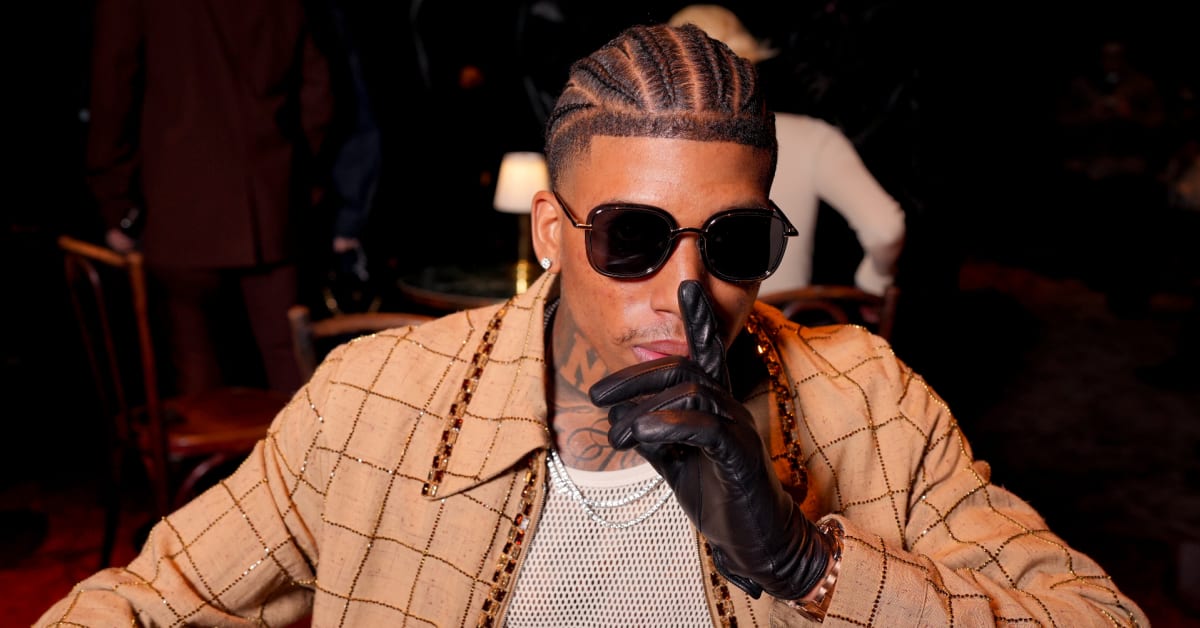Kendrick Lamar, the Compton-born hip-hop visionary whose music has consistently redefined the genre, continued his reign over rap at the 2025 Grammys. With his 2024 anthem “Not Like Us,” Lamar swept five awards, including song of the year, record of the year, best rap song, best music video and best rap performance. The night marked not just a celebration of his music, but a reminder of his unmatched ability to bridge artistry, commercial success and cultural commentary.
As Lamar walked to the stage to accept his record of the year Grammy for “Not Like Us,” a legion of audience members, including Beyoncé and Taylor Swift, danced and sang along to some of the song’s most incendiary lyrics as they blasted triumphantly from the house speakers. For however controversial the song may be to some, it’s worth noting Kendrick didn’t make “A minorrrrr” into a refrain until after Drake levied a number of damaging insinuations about Lamar’s partner and children in “Family Matters.”
Lamar’s Grammy sweep serves as the latest FAFO moment for the track’s intended target. Cementing the end of Lamar’s long-simmering rivalry with Drake, the song debuted May 4, 2024, with staggering numbers, racking up 96 million streams in its first week and crossing a billion Spotify streams in just three months. It hit No. 1 on the Billboard Hot 100 and became a cultural phenomenon.
In the days following its release, fans went to work deciphering Lamar’s razor-sharp lyrics. Among the allegations K.Dot calmly laid out were the Toronto rapper’s reputation for inappropriate behavior, low moral character, questionable credibility and cultural colonization. After calling out his foe’s flaws, Lamar next took aim at Drake’s associates before introducing the chorus that’s become a rallying cry for standing out from the popular crowd in favor of staying true to artistry, culture and a strong moral code.
With an irresistible hook and multiple catchphrases, the song that started as mic-drop on a multiple song rap beef has now been only further magnified after being cemented as the most winningest battle record in the history of hip-hop (ironically, Drake’s Meek Mill diss “Back to Back” lost out on the best rap performance Grammy to Lamar’s To Pimp A Butterfly single “Alright” in 2016).
Despite his dominance at his year’s awards, Lamar kept his time at the Grammys podium humble. Aside from being fitted in a Canadian tuxedo — head-to-toe denim, a playful nod to his Toronto-born adversary — the Compton rapper steered clear of beef. Instead of gloating at the podium, Lamar used the opportunity to shine a spotlight on his hometown and the culture he so proudly represents in his acceptance speech for record of the year.
“We gonna dedicate this one to the city — Compton, Watts, Long Beach, Inglewood, Hollywood, out to the Valley, the IE, San Bernadino — this is my neck of the woods that held me down since I was a young pup, since I was in the studio scrapping to write the best raps and all that, to do records like these,” he told the crowd. “I can’t give enough thanks to these places that I’ve rolled around since high school, most importantly the people and the families out in the Palisades and Altadena, this the true testament that we can continue to restore the city. We gonna keep rocking.”
The moment was an incredible callback to the Grammy’s focus on rebuilding, just weeks after wildfires devastated Los Angeles. Lamar’s love for his city has also been evident in the way he injected so much of the West Coast into the video for “Not Like Us.” He ended the evening’s win streak by dedicating his song of the year Grammy to his partner and the West Coast rappers who inspired him coming up.
“Whitney in the video Crip walking,” Lamar noted, after taking the mic from his collaborators. “We gonna dedicate that one… All the West Coast artists early on: G. Malone, Problem, Bad Lucc, K-Boy, Daylyt, Mykestro… These the cats that inspired me to be the MC I am today. Schoolboy, Jay Rock, Ab-Soul… this is what it’s about, because at the end of the day, ain’t nothing more powerful than rap music. We are the culture. It’s gonna stay. And to the young artists, I just hope you respect the artform. It’s gonna get you where you need to go.”
That final sentiment truly helps highlight the reason Lamar has been able to unify legions of fans. Much like his award-winning song, he is rightfully being celebrated for his ability to elevate hip-hop while keeping its roots intact. In a music industry increasingly defined by trends and algorithms, Lamar remains steadfastly authentic. His Grammy wins serve as a reaffirmation of his role as a torchbearer for the culture.




















 English (US) ·
English (US) ·